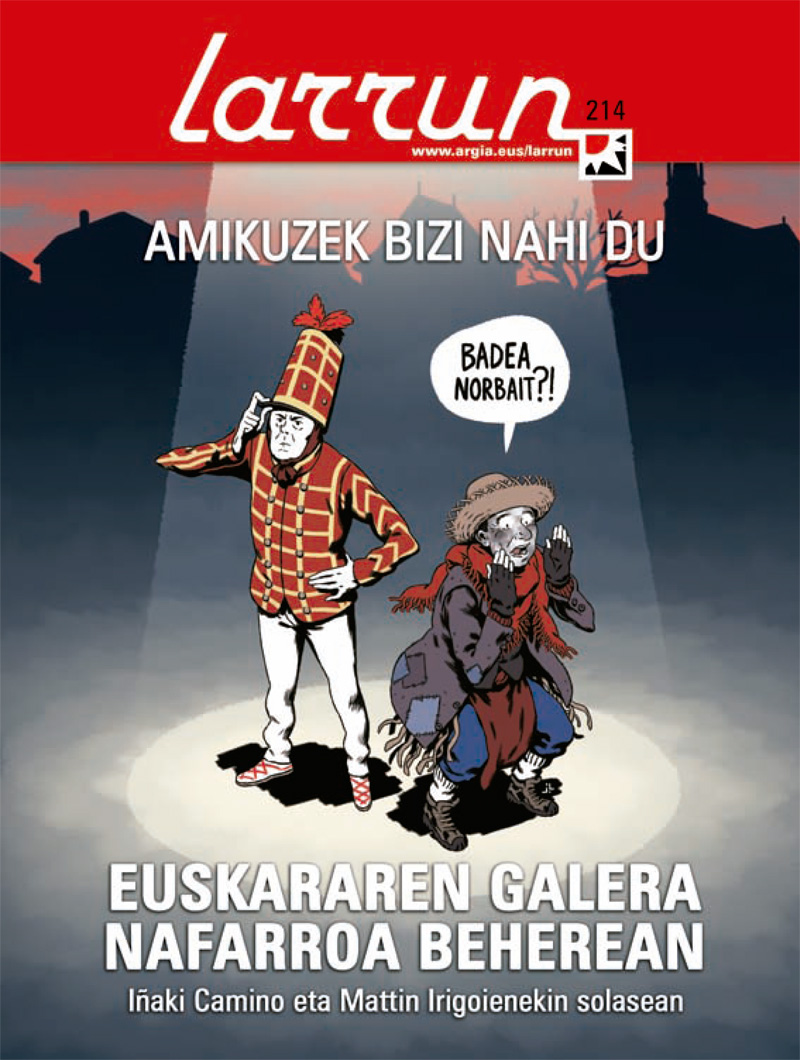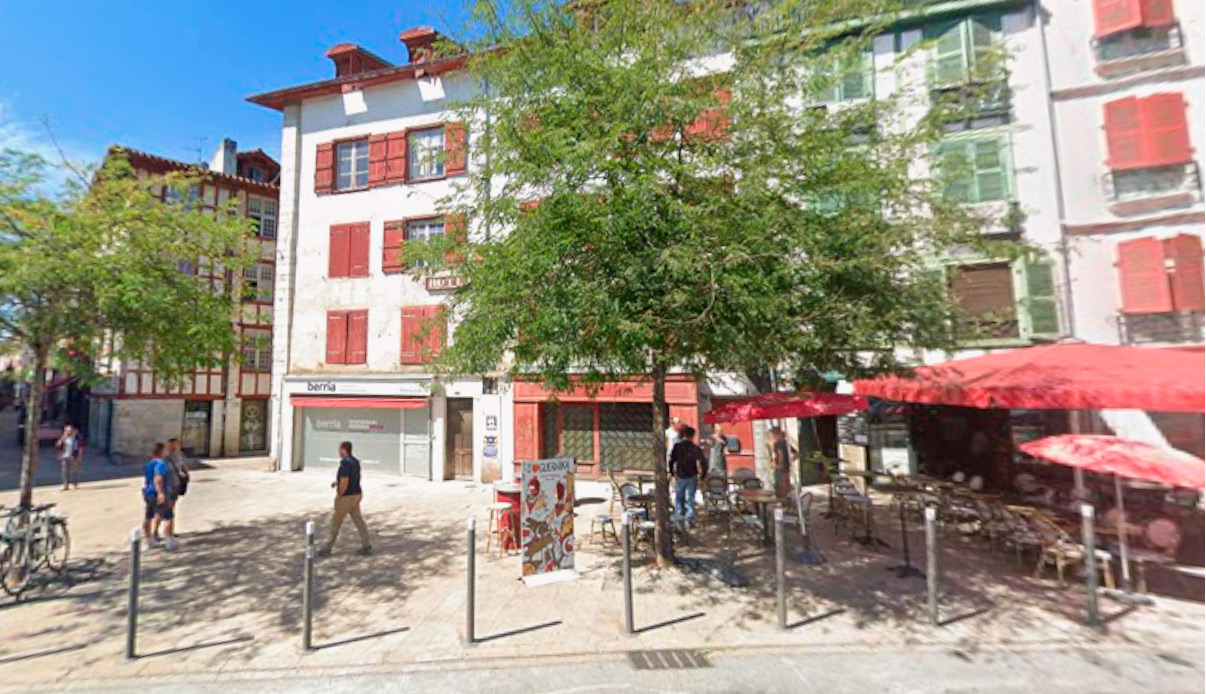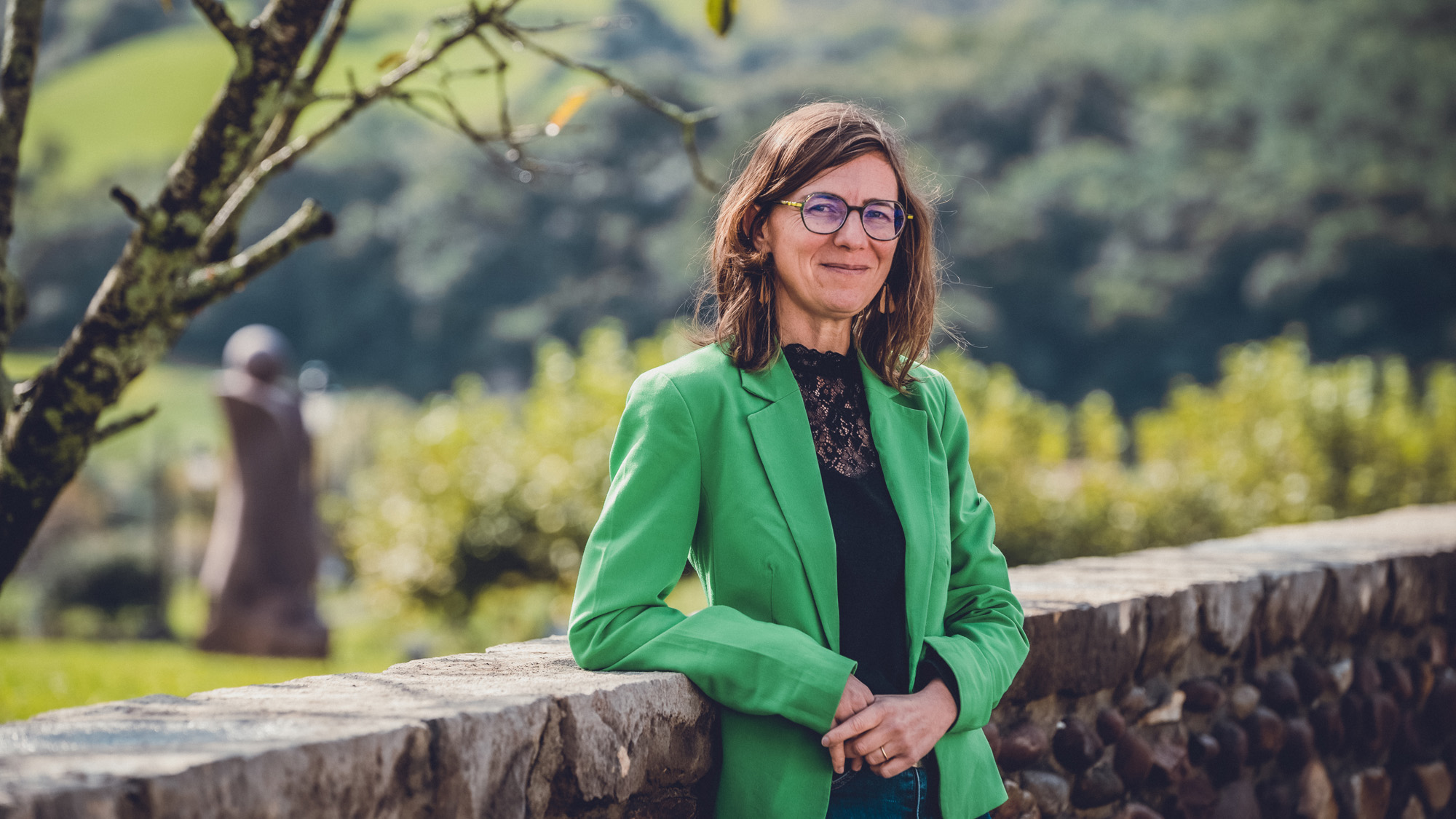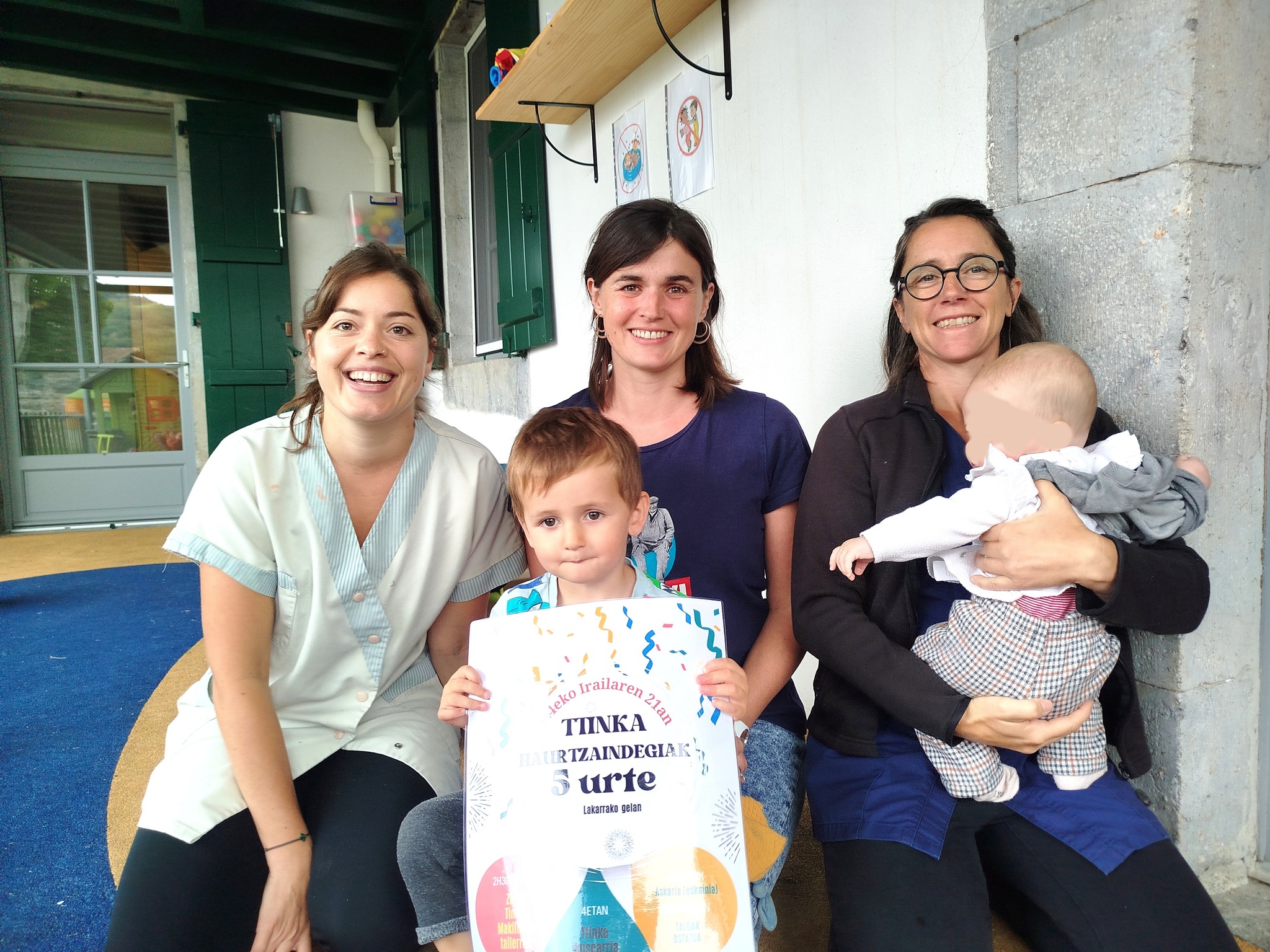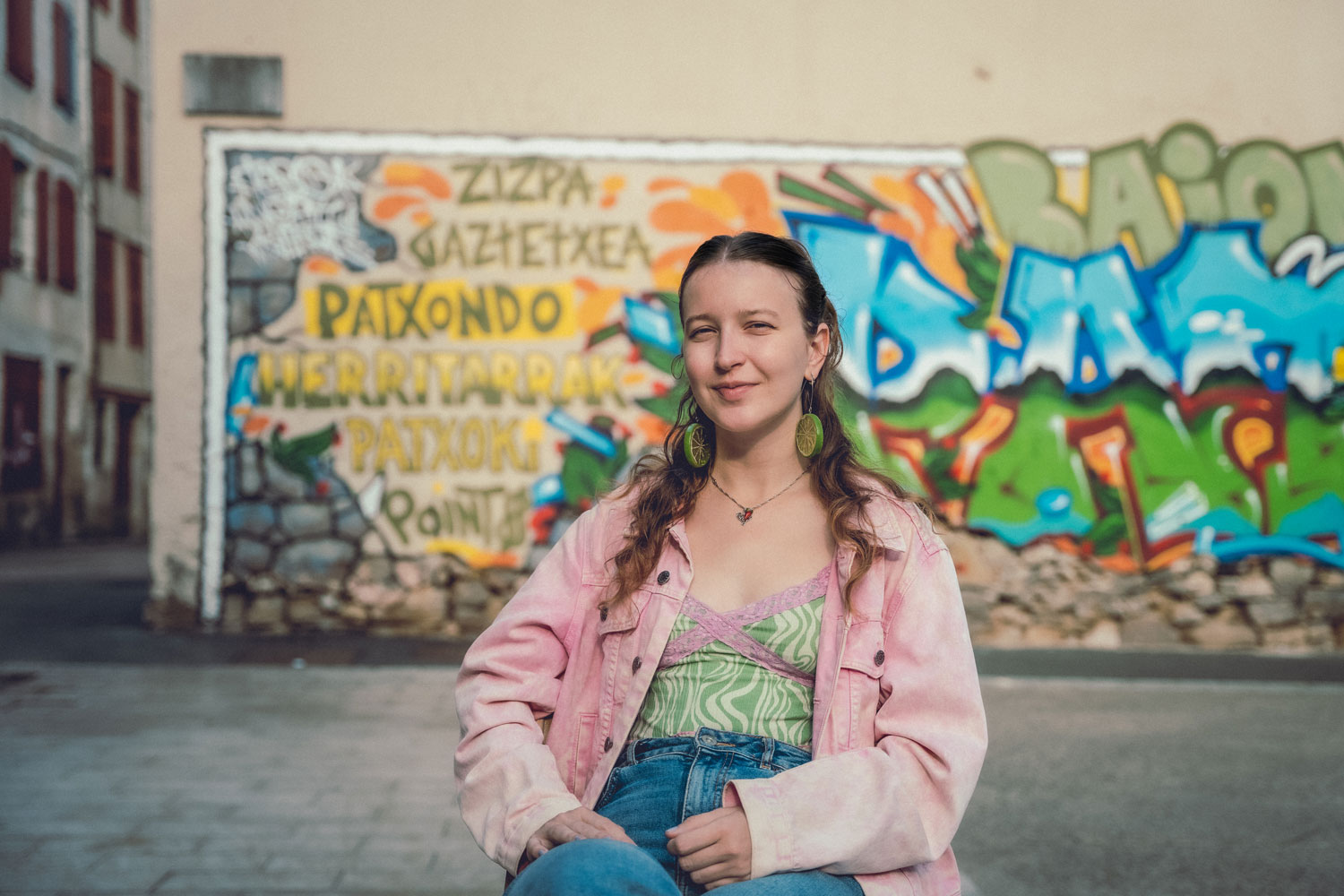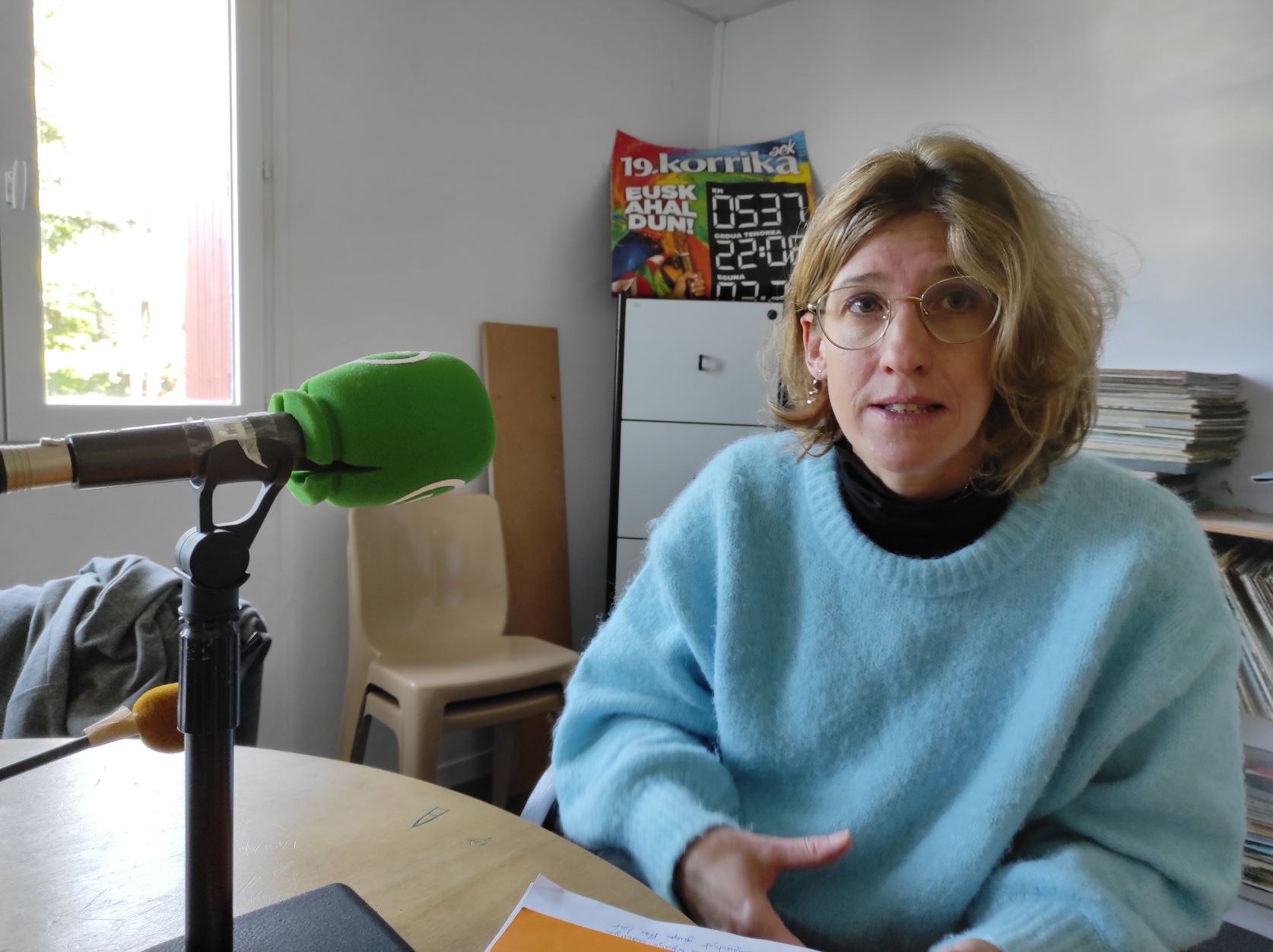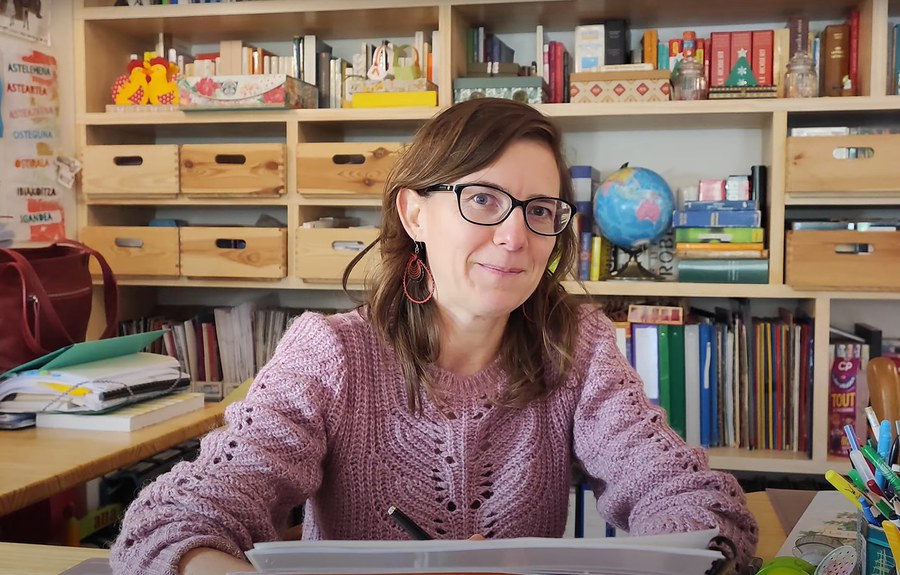"Is there anyone here?" ": Looking from Amikuze to the loss of the Basque Country
- As many of those from Amikuze or Amiküze say: In the northern extreme that borders with Bearno la Baja Navarra, 32 villages, 9,000 inhabitants among them, the capital Donapaleu – Dnaplü – with 1,850, a landscape of wide plains and low hills, in all the stalks, the area of creation of the industrial agricultural cooperative Lur Berri, called in Europe, some small companies… and the knowledge of the Basque in about 50%. Really? In fact, although a Basque who comes outside will find it hard to hear in Euskera somewhere, if it is not Friday at noon at the fair and in the bars of Donapaleu, in the mouth of the champions of labradores over 75 years old: half of the amikuztarras knows it. A startled hegoner on the streets of Donapaleu may think that if the Galos have occupied the entire territory of Xilaba, they have made Amikuze particularly French. But also here, in the villages of the fields that enjoy the Aturri and Biduze rivers, there are people and groups who want to revolutionize the destruction of language. Amikuztarras who want to live in Basque! However, 50 years ago, in the interior of Lapurdi and throughout Baja Navarra and in Zuberoa, in the villages of Amikuze the knowledge of the Basque Country exceeded 80%. The book “The linguistic struggle in the Basque Country”, published by Euskaltzaindia in 1979, contained in its last pages some striking colored sheets in which all the municipalities were colored according to the Vascoparlantes; on the map were found most of the villages of Amikuze with a red color that had to be read between 80 and 100% of the Basque people.
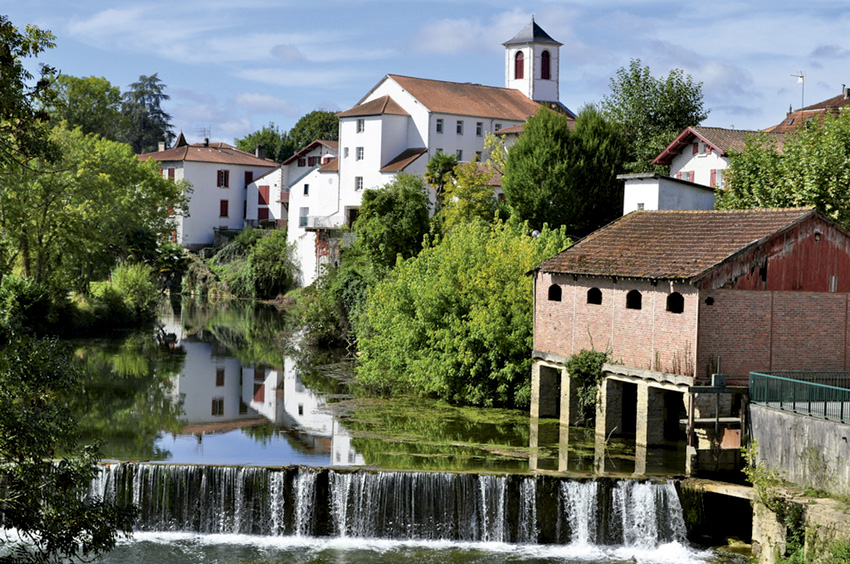
When in 1972 the linguist Pedro Irizar (1910 Azkoitia-2004 Madrid) gathered in colorful maps the results of the survey conducted throughout the Basque Country, it was shown that the Basque Country did not cease in Amikuze: 81% of the 8,419 inhabitants per hour could speak in Basque, 90% in most towns and 58.8% in Donapaleu. 45 years later, it is estimated that the knowledge of the Basque country is at 50%.
“It is believed”… because as EDB appears in the Repository of Sociolinguistic Data of the Basque Country, in Iparralde there are no data by counties, much less in the municipality. In the whole of Zuberoa + Nafarroa Beherea, who in 1996 were able to understand the Basque (Euskaldunes + Cuasi-Euskaldunes) represent 76.3%, in 2001 76%, in 2006 66.2% and in 2011 66.2%.
The interruption of transmission is even more evident in the section of the “Basques”, among those able to understand and speak the language: 64% in 1996, 60.9% in 2001, 55.5% in 2006 and 52.1% in 2011. This 8% loss in every decade scares the Basque Country.
If we look at the EDB data, without taking into account the evolution, we only refer to the 2011 photos, Nafarroa Beherea (52.1%) and Gipuzkoa (53.3%) have similar percentages. The fact is that Irizar found in Amikuze 80% and 90% in 1972, while in Gipuzkoa in 1981 the Basques accounted for 39.5%. Since then it has not stopped climbing one thing to another.
The Euskaltzales of Amikuze, like the rest of the Iparralde, have not been flexed in arms waiting for the body of the Basque Country to pass through the street. In 1971 the ikastola of Amikuze was created very early, 45 years later the children's school and 70 children up to 11 years of age gathered in the first level. AEK is trying to reeuskaldunize adults with half a hundred students. And in recent years, the Zabalik association is concentrating efforts and bringing out more news.
Beginning in 1983 with the name of Manex gogoan in honor of the writer and fraile Manex Erdozainzi-Etxart, in 1997 began his collection of OtsailOstegunak conferences. Since then, Zabalik has made Amikuz the meeting point of people and associations who want to live in Euskera, collaborating: The theatre group Kitzikazank, the theatre group Gaitz’amik and Txaranga of Amikuzeko Musikariak, Bertsu Eskola, the gaztetxe Aldaka, the Ikastola, AEK, the association of joaldunak Kilimon… Santibate and Libertiment, two of the streets of Donapaleu show.

In 2011, when the Ikastola was 40 years old, they organized the “Amiñi bat, amiñi bi” campaign to reflect on the local Euskaltzale movement and give them pride. The efforts were embodied in the book “Is there anyone?” that explains the history and culture of the Amikuze region. To ask if there is anyone, that is one of the slogans of the Basque Country who want to explain themselves in the light of the day.
But how will progress be made if there are less than half of the boys and girls in the school who learn Basque? Based on data from Amikuze, last April Zabalik published on his website, with data from 2015, a study on the situation of the Basque Country in the majority of Iparralde: “The Basque in our schools: everything and not everything…”
Compared to the well-known models in Hegoalde, Iparralde's children can only learn in Seaska on model D, called immertsio, and in Amikuzen only 9% of the children are studying. There are bilingual classrooms to grossly compare Model B in many public schools – not all of them, such as Arberatze, Arboti, Arüe, Behaskane, Etxarri, Domintxine, Mehaine, Mithiriña and Ozerain, there is also no possibility of false bilingualism – where 40% work. Most will also abandon from the first level any relationship with the Basque Country.
Finally, more than half of the amikuztarras boys and girls are educated without reaching model A of the South in a model that is more similar to model G or model X. And Zabalik calls the alarm. “We are in an emergency situation when we see this data. If in the following years model B is not generalized and model D reaches higher figures, knowing that the most Euskaldunes are disappearing in the following decade, we will have difficulty believing that we are still here above Euskal Herria”.
Amikuze is the exact example of the decline that the Basque Country still lives today in Ipar Euskal Herria and has given the rest of the Basque peoples what to think of their supposedly better situations, but in the background very precarious.
Iñaki Camino presented in February 2015 to the amikuztarras the linguistic analysis of his almost dead old language: Basque Country of Amiküce The writer Mattin Irigoien gave him a presentation at Donapaleu. We have asked the two of them about the keys to what has happened so far and the desire and impediments to the future.
The problem of the afrancession of the names of the places of Euskal Herria is not only due to the lack of consideration of the language in the signaling panels, but also to the execution of a decision on the domiciliation that was taken a few years ago.
Ultimately, the... [+]
Larunbatean ospatu dituzte Ttinka mikro haurtzaindegiaren bost urteak Lakarran. Baxe Nafarroko euskara hutsezko egitura bakarra da, Euskararen Erakunde Publikoaren B ziurtagiriduna.
On May 17, five Euskaltzales of Ipar and Hego Euskal Herria performed an action coinciding with the call made by the students of the Bernat Etxepare lyceum to mobilize in favor of the Basque. On the wall of the Baiona Subprefecture, a message was sent to the authorities of the... [+]
“Geldi euskara zapaltzea” lema berriz hartu du Euskal Herrian Euskaraz taldeak larunbatean egin duen prentsaurrekoan. Maiatzaren 17an, esaldi hori Baionako suprefeturan tindatzeaz akusaturik, irailaren 10ean epaituko dute Gorka Roca Torre.
Ikasturte honetan, lehen mailako ehun eskola elebidunetan 5.700 ikaslek ikasiko dute. Bigarren mailan hamasei kolegio eta lau lizeotan 1.600 dira. Zailtasun nagusia aurten ere kolegioan euskararen eta frantsesaren arteko oren parekotasuna erdiestea da.
Start of the summer. EHZ festival hangover (atx, headache). You want to breathe after a charged course. Flush the head. Reconnect key elements. Take some time with family, see old friends again and rest (a little) in the daily struggle. Really? !...
As a family, walk to the... [+]
Ms. Judge of the Bayona Court of Justice dismisses:
In March, I was judged by some Euskaltzales in Baiona for taking part in some of the actions we have taken to denounce the unfair treatment suffered by the Basque authorities in the French state. At the beginning of the trial,... [+]
Maddi Kintanak Baiona, Angelu eta Miarritzeko gazteen euskara aztertu du bere tesian. Hitz berriak sortzen dituzte baina baita hitzak beste hizkuntzetatik hartzen ere, besteak beste, interneten eraginez.
"Euskara eta euskal literatura, programaketatik ikasgelara" jardunaldian parte hartu zuen Katixa Dolhare Zaldunbidek. Seaskak eta UEUk antolatu Udako Ikastaroen barne. Bere problematikak horiek ziren: Zer leku du literaturak hezkuntza programetan eta nola landu euskal... [+]
Iñaki Iurrebaso soziolinguistak euskararen egungo egoeraren argazkia egin du Baionan iragan zen Hizkuntz politikari buruzko ikastaroan, muga-gaindiko ikastaroen kari.







